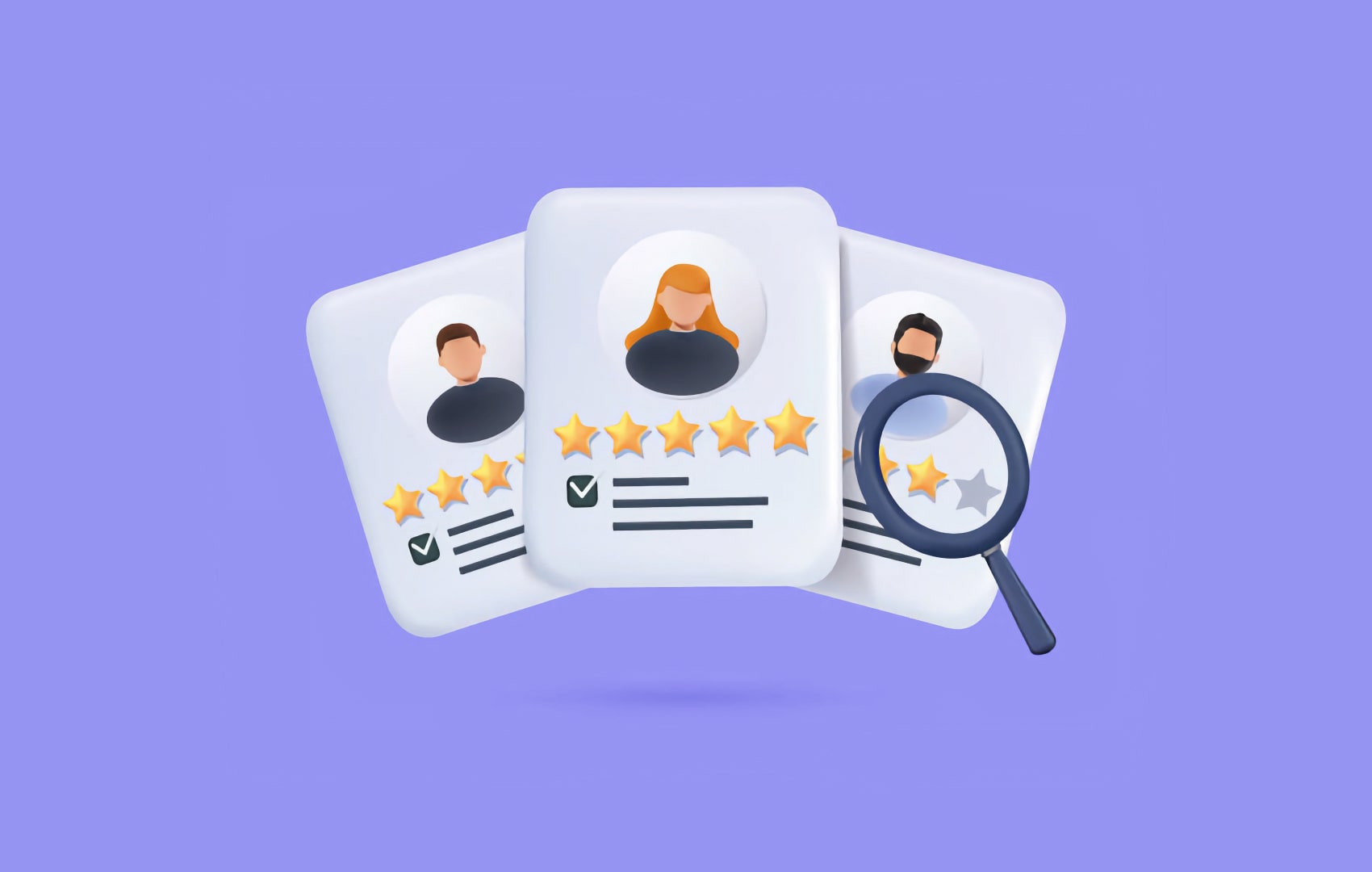How to Start a Pay-Per-Click Agency From Scratch

To answer shortly, starting a digital marketing agency is easy. But there’s a tricky part. To make it easy, there are a hell lot of things to learn. So, we will try to take this burden off your shoulders and list practically everything you need to know.
PPC agency is considered a type of digital marketing agency. Consequently, in this piece, we’ll cover the good old ‘how to start’ classic but with more attention to PPC. The process of creating a PPC-centered agency has to undergo some predefined steps each marketing agency has to.
For example, we will talk about how to choose the agency niche and embellish it with a reliable business model. Then, we’ll go over pricing, web presence, and first clientele research. Later, we’ll cover how to build a dream team and a fancy portfolio topping everything up with approximate costs.
Intrigued? No wonder! It’s a complex article, and we hope it’ll be as clear and concise as possible for you.
Digital marketing agency types
Before discussing how to start a PPC agency, you need to define which type you want your agency to be. It must be defined once and never changed again as the type is kind of a foundation of your future agency. In today’s marketing industry, there are three main ones.
Full cycle
They provide end-to-end digital marketing solutions. They cover everything from strategy development to campaign execution, analytics, and reporting. If you're looking for a comprehensive approach to digital marketing and want an agency to handle all your needs, a full-cycle agency might be the right fit.
Single-channel
These agencies focus on one specific area of digital marketing. They're experts in their chosen field and can provide specialized strategies. A single-channel agency might be a good choice if you have a particular focus.
Multi-channel
These agencies offer services across multiple digital marketing channels. They have broad expertise and can create integrated marketing campaigns across different platforms. If you want to reach a wider audience and leverage various channels, a multi-channel agency can help.
Types of PPC ads
Warning: assuming the fact that you’re reading about how to start a PPC agency, we hope you did your homework and know what PPC actually means. If not, here’s what it is.
A pay-per-click agency is a company that specializes in managing PPC advertising campaigns for businesses. PPC is an online advertising model where advertisers pay a fee each time their ad is clicked. These agencies help businesses create and optimize PPC campaigns across platforms like search engines and social media. They aim to drive targeted traffic to their clients' websites, increase brand visibility, and generate leads or sales.
Anyways, let’s get into something we all gathered here for. We’ll talk about PPC essentials – types of pay-per-click ads. Why ads? Because they’re the main income streams in your future PPC agency.
Search ads
Being the most common ones, everybody knows what they are. Typically, you can see them when you search for anything in the browser. Let’s operate with terminology a bit. You will need it along the journey.
There are SERPs – Search Engine Results Pages when you search for specific keywords.
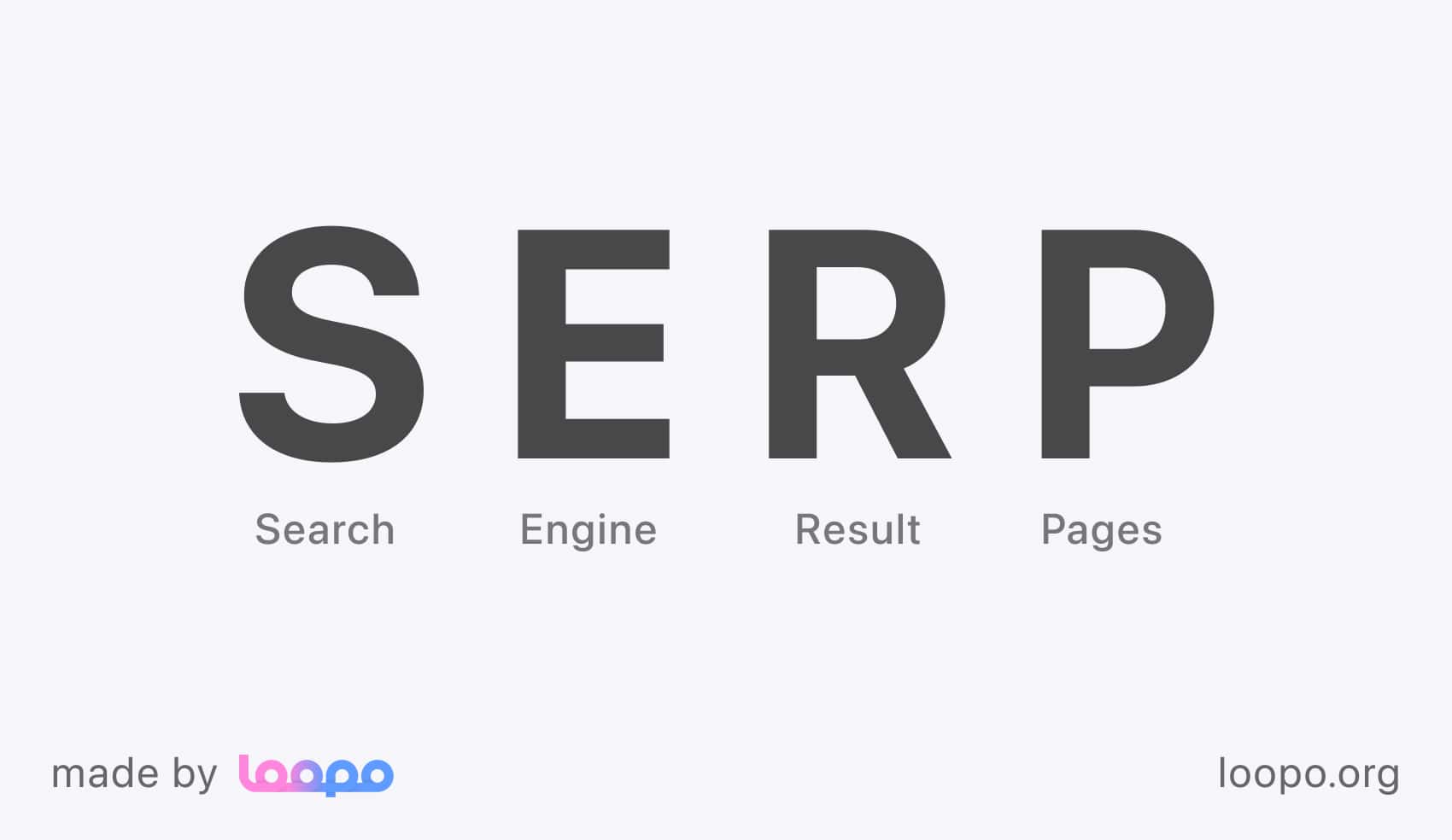
Accordingly, search ads normally appear at the top of SERPs. Just like any other search result, search ads consist of a headline, description, and URL (Uniform Resource Locator). Here’s what they usually look like.
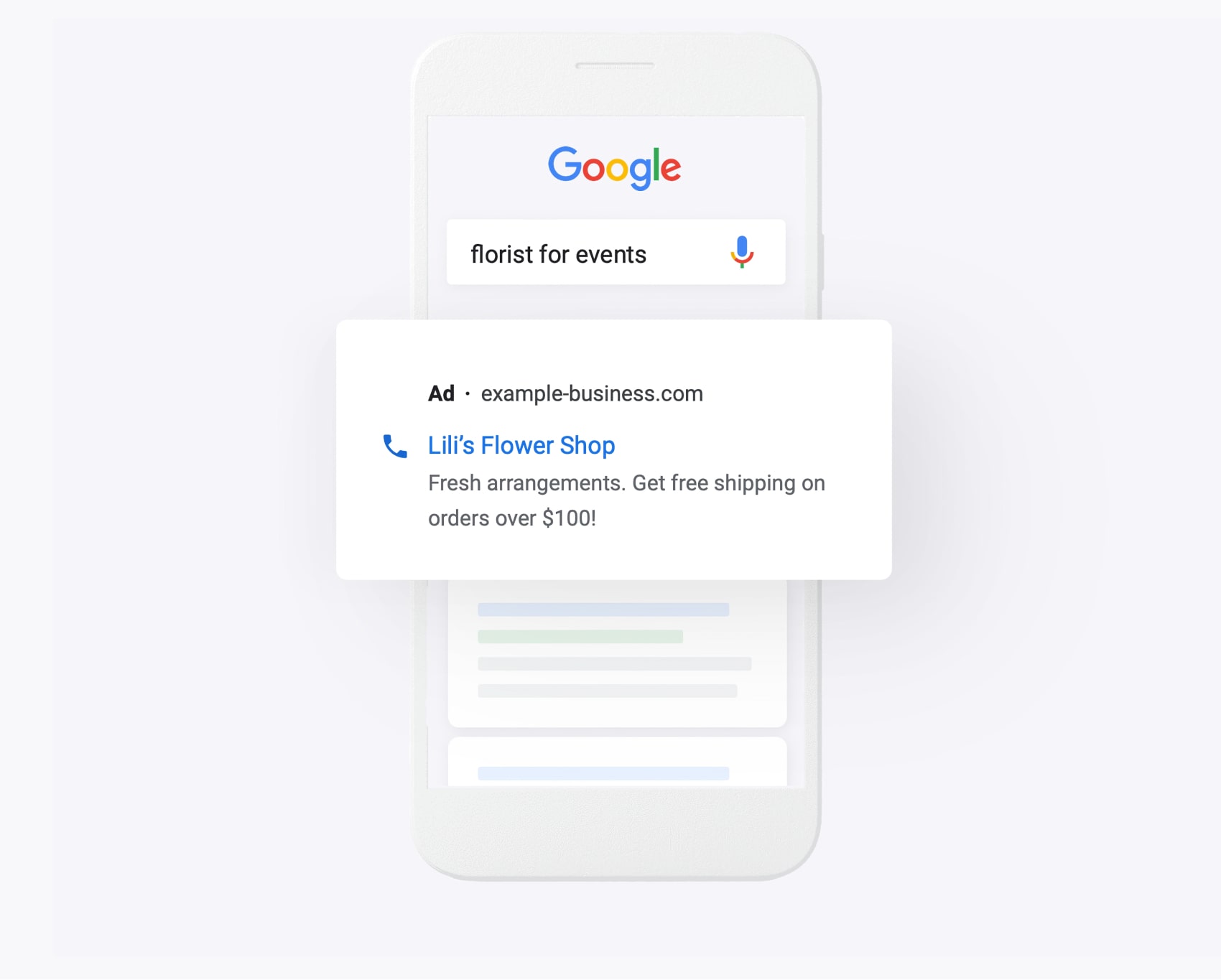
If, for some reason, you wonder why use them at all, here’s why. People are used to search ads, and it has become a very natural way to drive new leads for your business. For instance, Google Ads are capable of attracting almost 250 million unique users per month.
Display ads
This type of advertisement is also widespread but only for those who don't use ad-blocking plugins. Display ads are just graphical advertisements. Usually, they show up on websites that are within a network of publishers.
They can include images, text, and even videos. Most of the time, display ads are targeted. They promote goods or services based on your local data, like language preferences, demographics, interests, and browsing behavior. Here are examples of typical display ads.
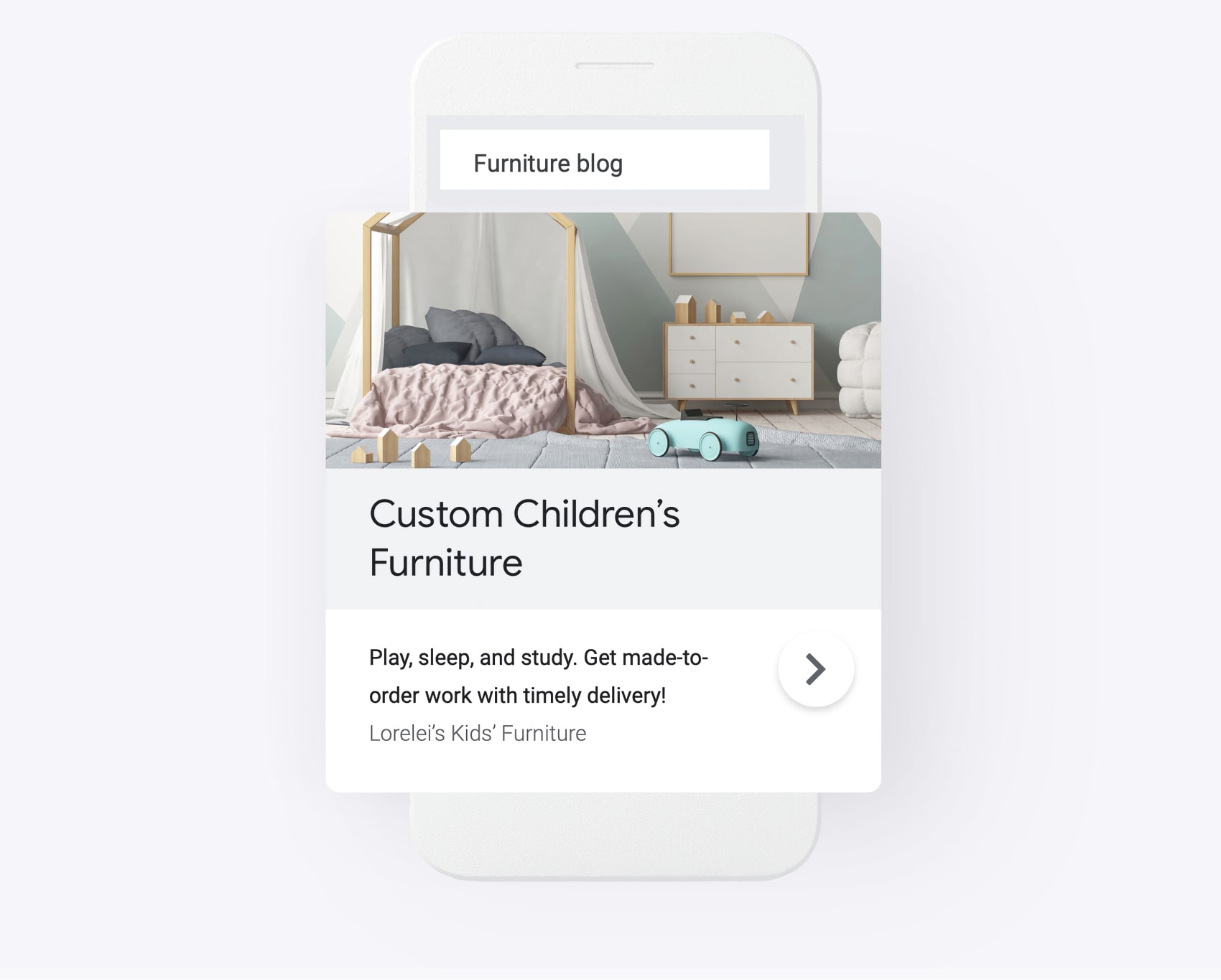
Video ads
This is the king of annoyance for users and a huge income source for marketers. Basically, anyone is familiar with them. They are displayed within video content on platforms like YouTube or Twitch. They can appear during the whole watching session. Video ads come in two forms: skippable and non-skippable.
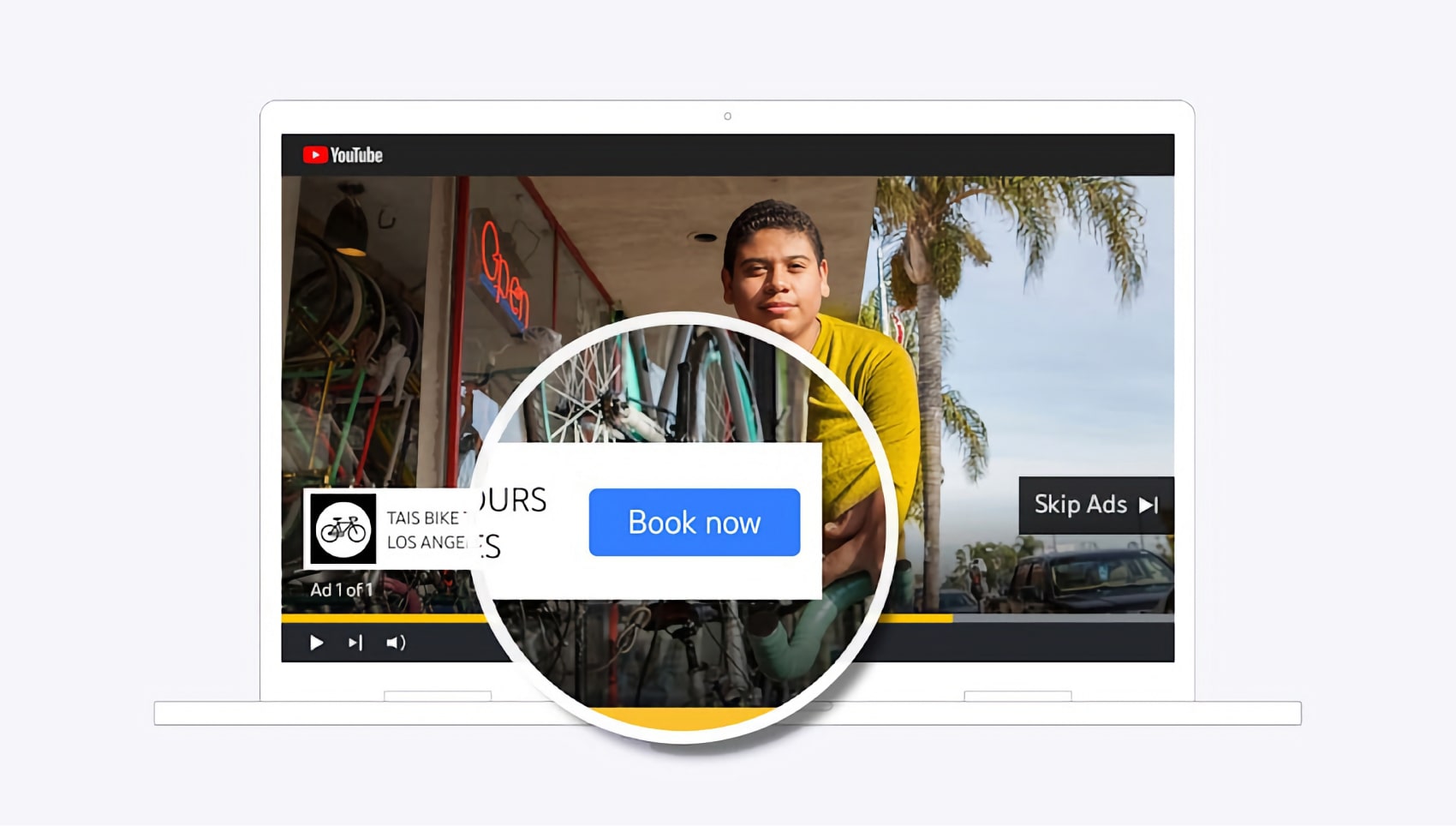
They are extremely effective, by the way. Basically, they simply force users to watch ads if they want to continue with their content. Moreover, Youtube has a series of educational videos explaining everything from A to Z. Here, take a look!
Remarketing ads
These ads are the ones that make people feel they are being monitored, listened to, and watched by big-evil-greedy corporations. Sorry to disappoint you and break the mystery veil, but they are called remarketing ads and are simple as that!
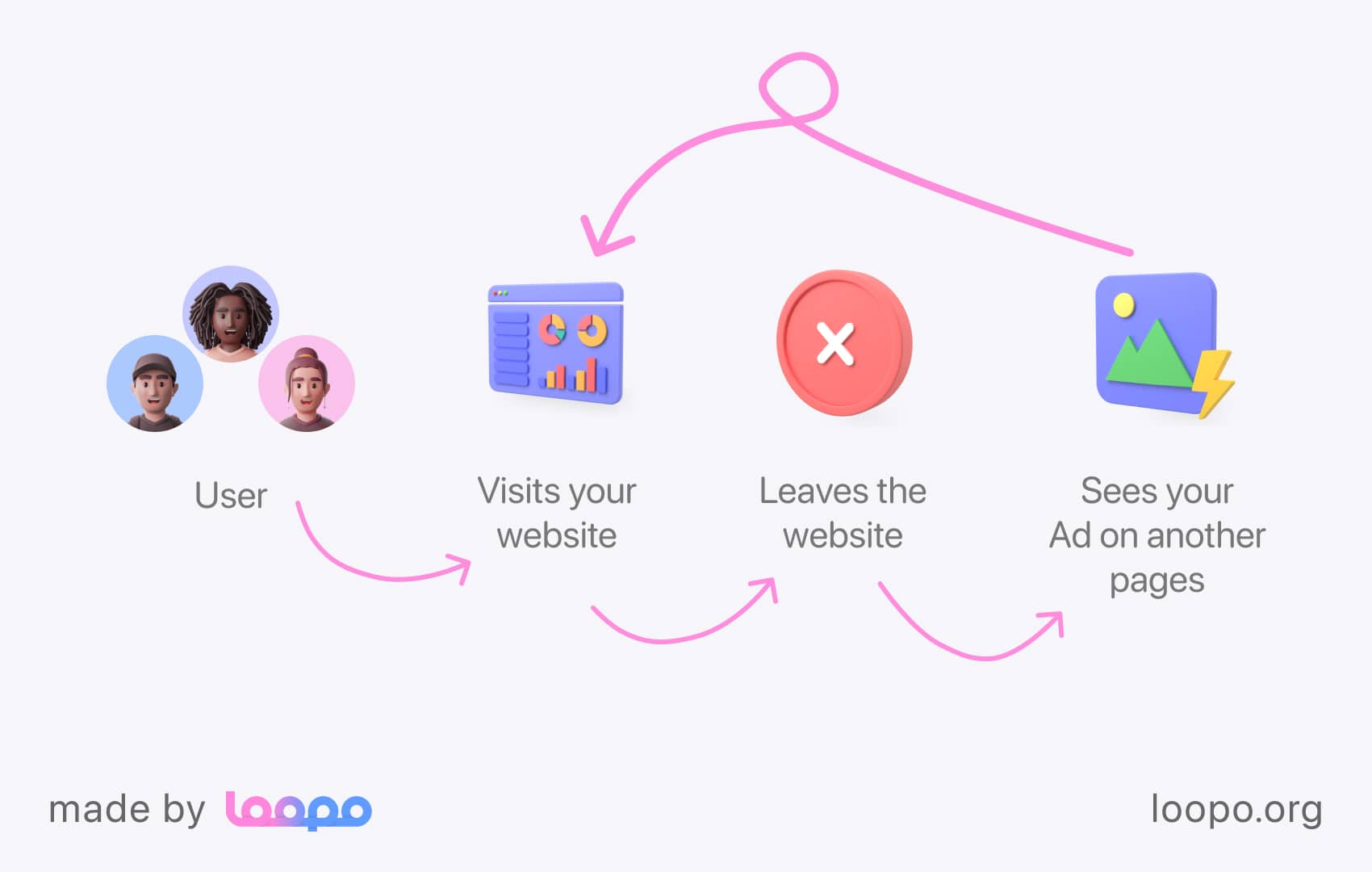
As you may have noticed, they target users who have already used or watched your online content or site. These ads kind of “follow" users as they browse the internet, serving as reminders to revisit your site and complete a desired action. Here’s what they usually look like
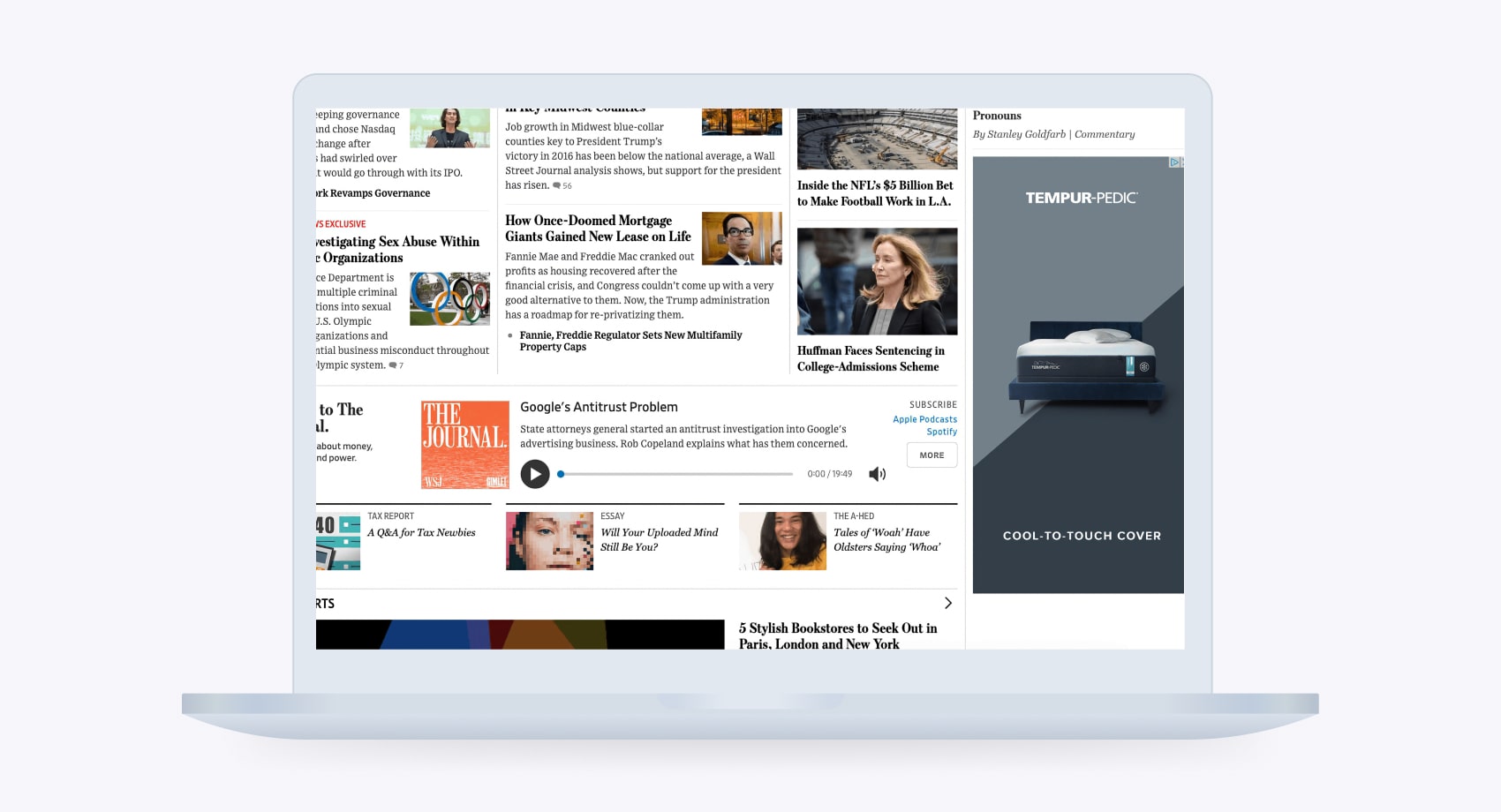
As you can see, the person reading the news was clearly looking to buy a new mattress. Hence, it is now displayed as a remarketing ad on other sites the user follows.
Gmail sponsored ads
As Google expands its presence in the marketing field, you can also count on Gmail sponsored ads. What are they?
Gmail sponsored ads are the ones that appear between the lines of your usual emails. However, they aren’t like pop-ups. Instead, they’re integrated right into Gmail, so they cannot be gotten rid of with ad-blocking plugins. In addition, they’re neatly incorporated, blending in with your real emails.
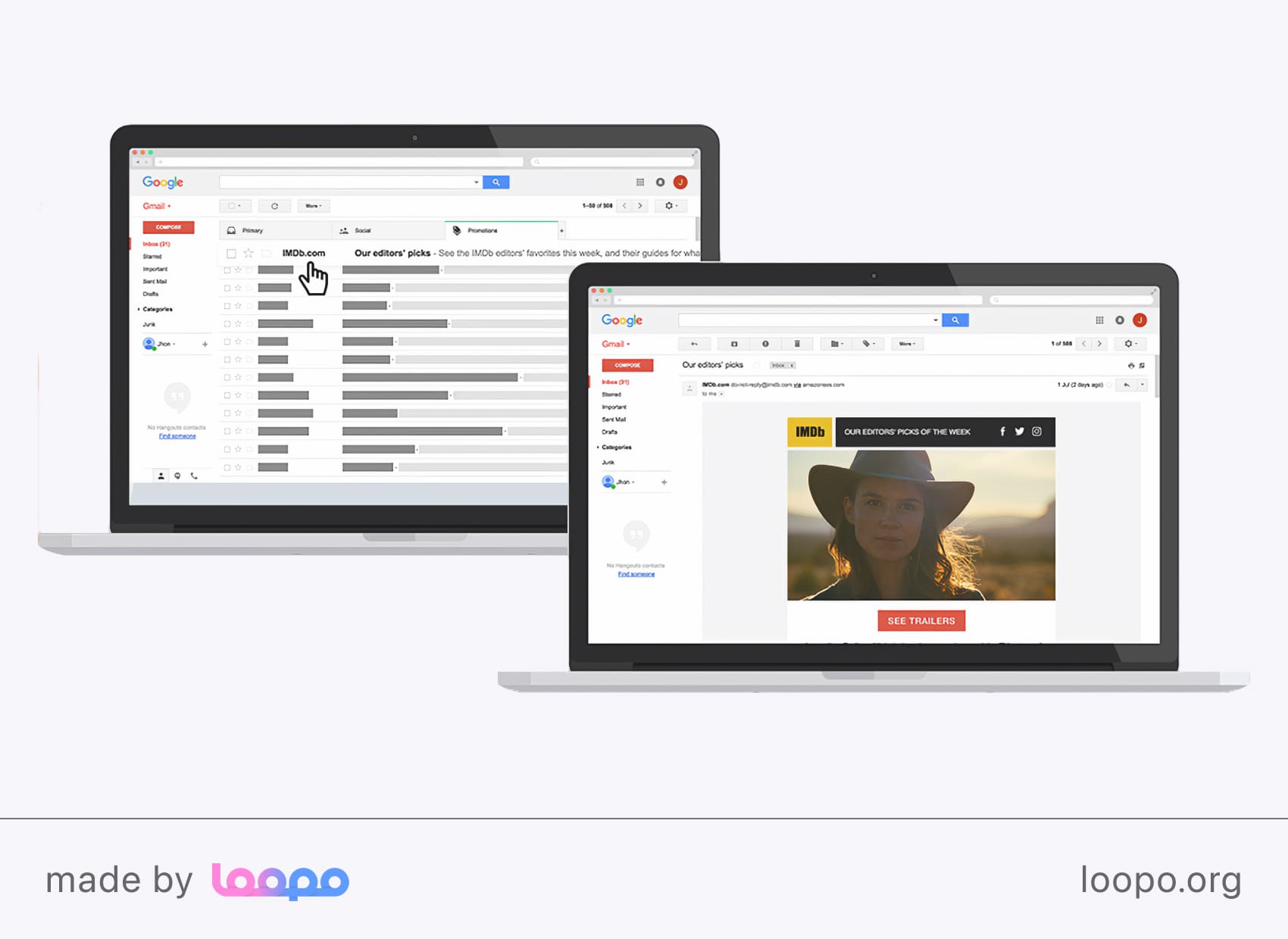
Social media ads
Social media are irreplaceable things in our everyday life. No wonder these ads have always been the most popular. Major social media platforms like Instagram, Pinterest, LinkedIn, Twitter, and others offer their own pay-per-click advertising options.
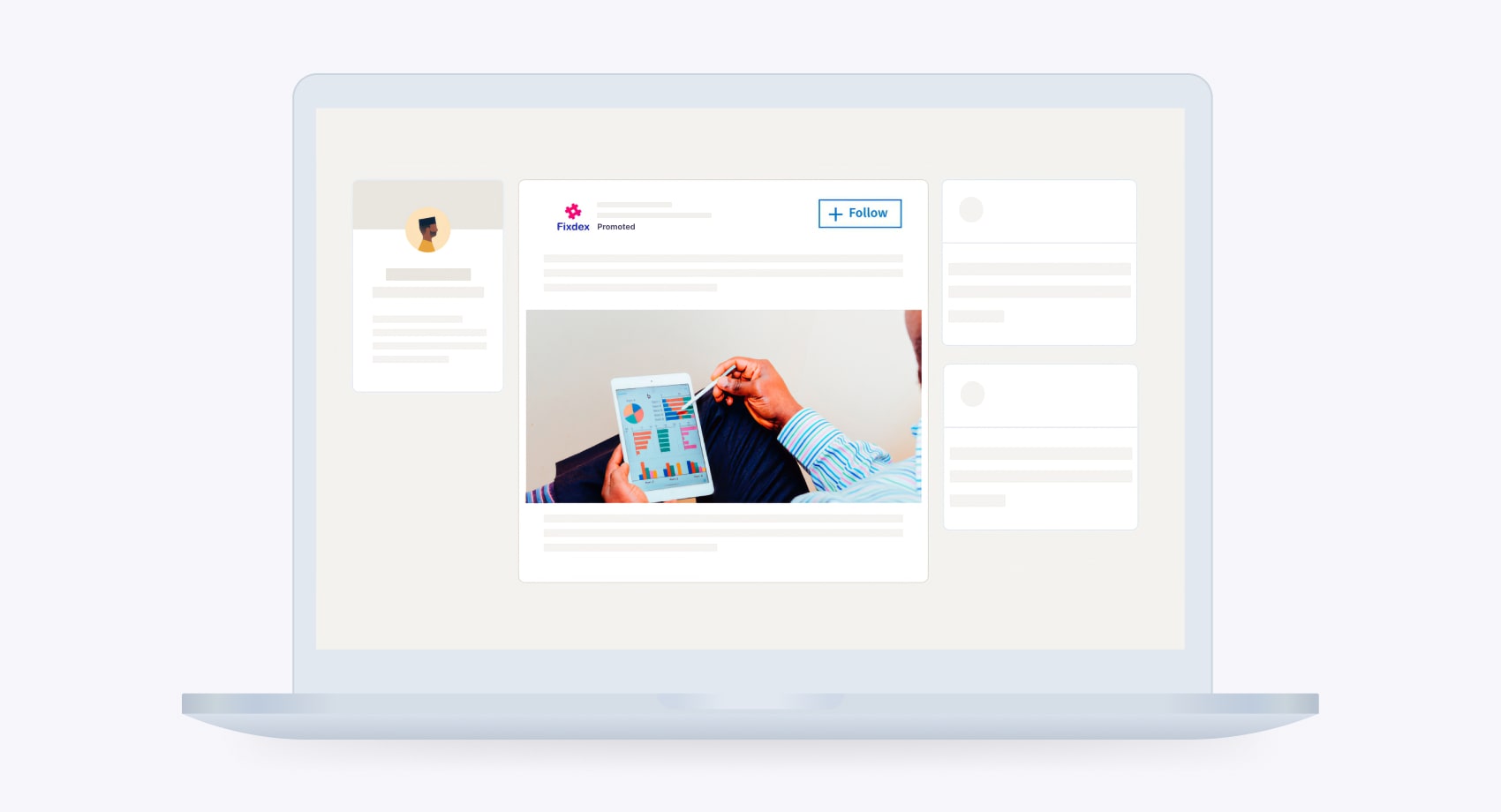
You can target social media ads to users based on many things. For instance, ads can use users' demographics, interests, and patterns to reach specific audiences. Moreover, they’re pretty good at establishing a connection with your audience.
Local service ads
This type of ads is exceptionally niched. Yet, it can be profitable if appropriately applied. Essentially, local service ads are specific to businesses that provide local household services (plumbing, electrical work, cleaning, etc.). It’s unlikely your PPC agency will have many leads interested in local service ads, but it’s nice to offer them.
To be relevant, they are tailored to the keywords you search and the region you’re searching from. Usually, they appear at the top of search results for relevant local queries and include contact information, reviews, or ratings. Take a look.
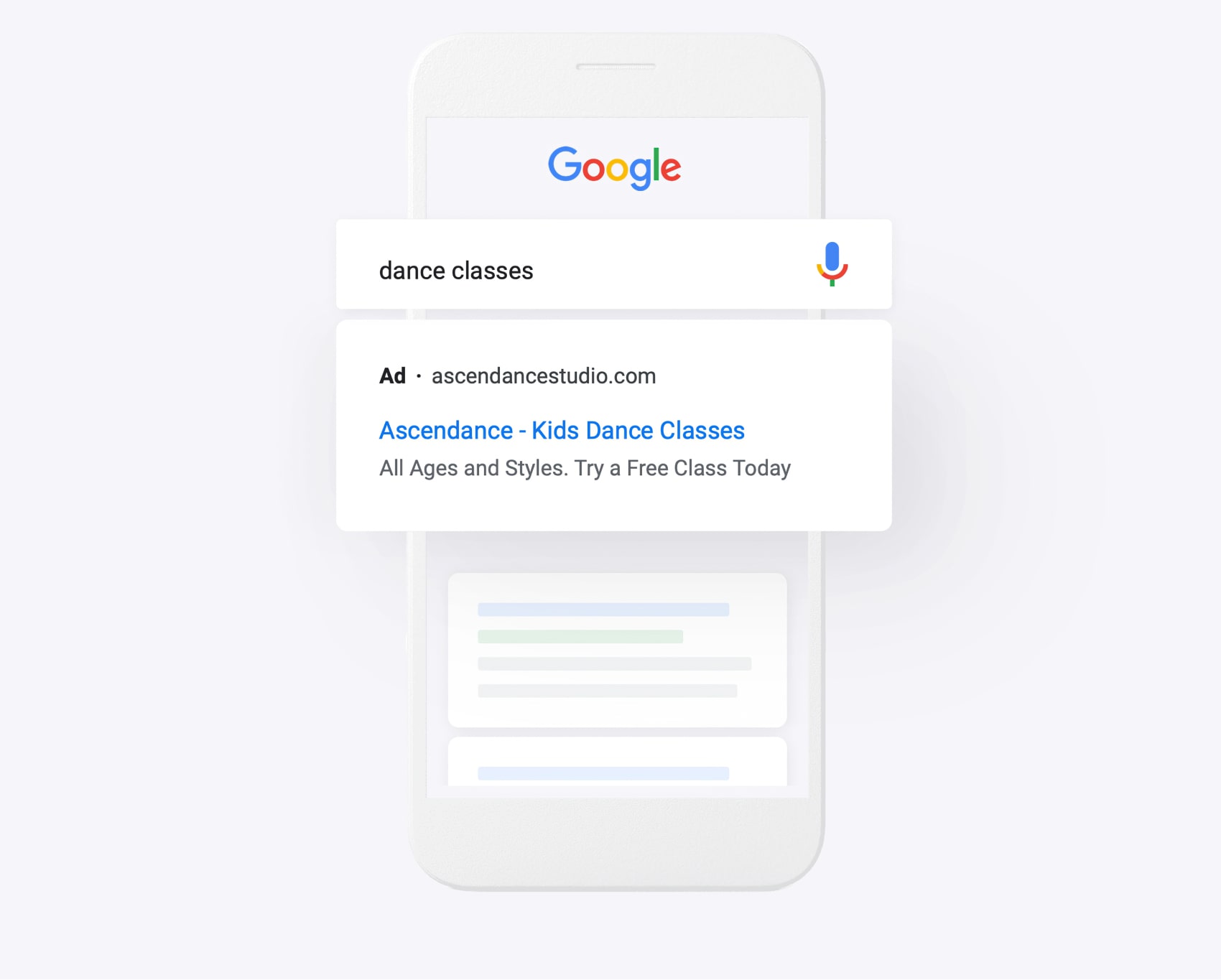
Shopping ads
These ads are mostly used by e-commerce businesses. They are needed to showcase specific products and their prices directly in search engine results. Normally, shopping ads include product images, descriptions, prices, and the online store's name.
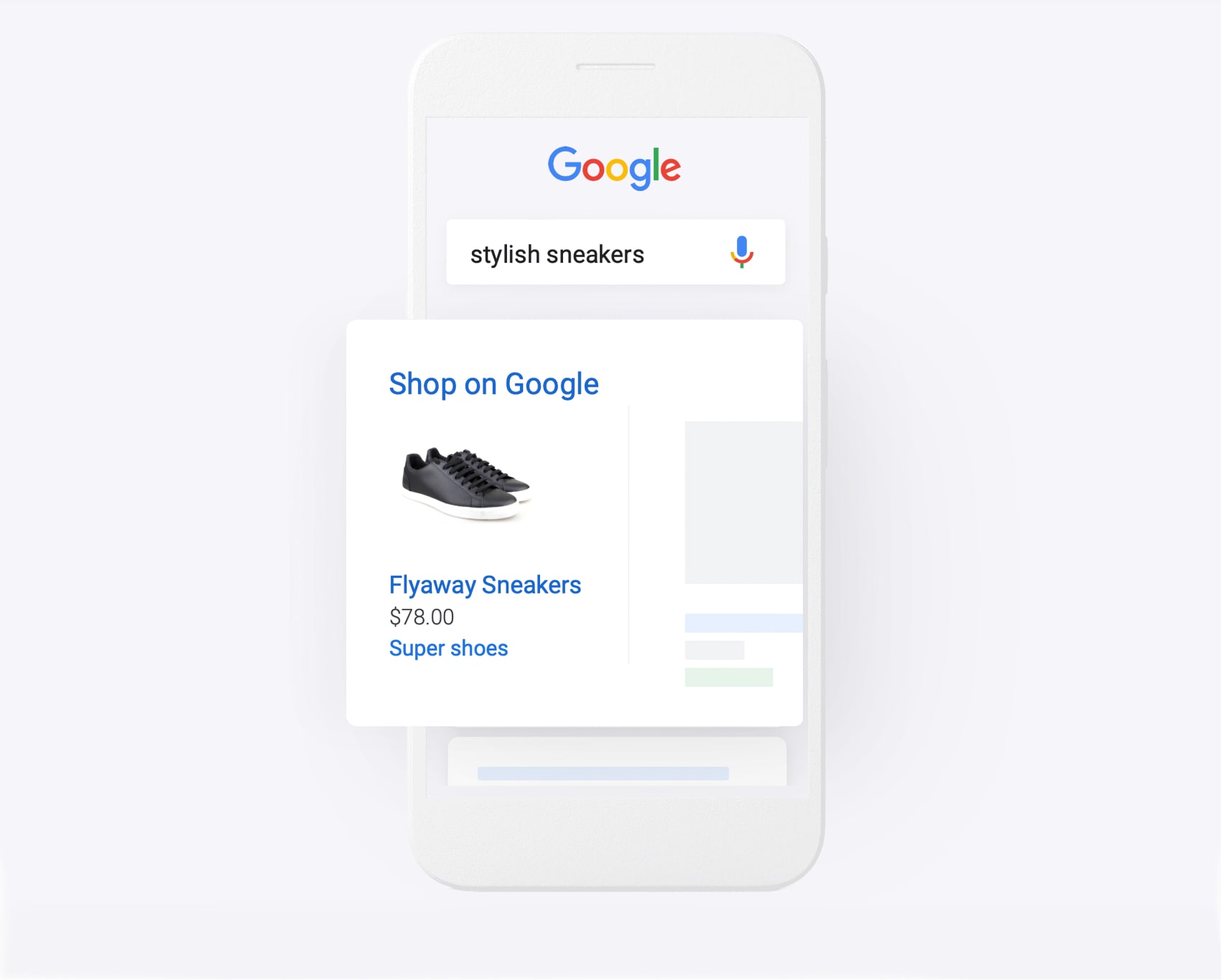
Steps to start a PPC agency
Now that we covered the theory, let’s talk about how to start a pay-per-click business. As mentioned, creating a PPC agency can be easy. All you need is a hell lot of dedication, knowledge, and a proper plan.
Think about it: we already discussed the knowledge, a dedication is up to you, so what’s left? Right, a detailed plan! Let’s dive into the essential steps, known as “the way to forget about wondering about how to start advertising agency.”
1. Choose the niche
Think about the specific area or industry you want to focus on. Picking a certain industry will help you conquer it quicker and become an expert in that particular field.
When you think of how to start an advertising agency, identify the specific niche or area of specialization for it. Think about the industries you like or certain types of clients you want to serve. Focusing on a niche can help you stand out and position yourself as an expert in that field.
2. Develop the suitable business model
Determine the business model that best suits your agency. Yes, easier said than done. However, try asking yourself: will I charge clients on an hourly basis? Should I provide fixed-price packages or offer performance-based pricing? Study the ups and downs of each model. Then, choose the one that aligns with your goals the most. To put you in more context, let’s explore them, shall we?
Basically, there are found main options you should look at.
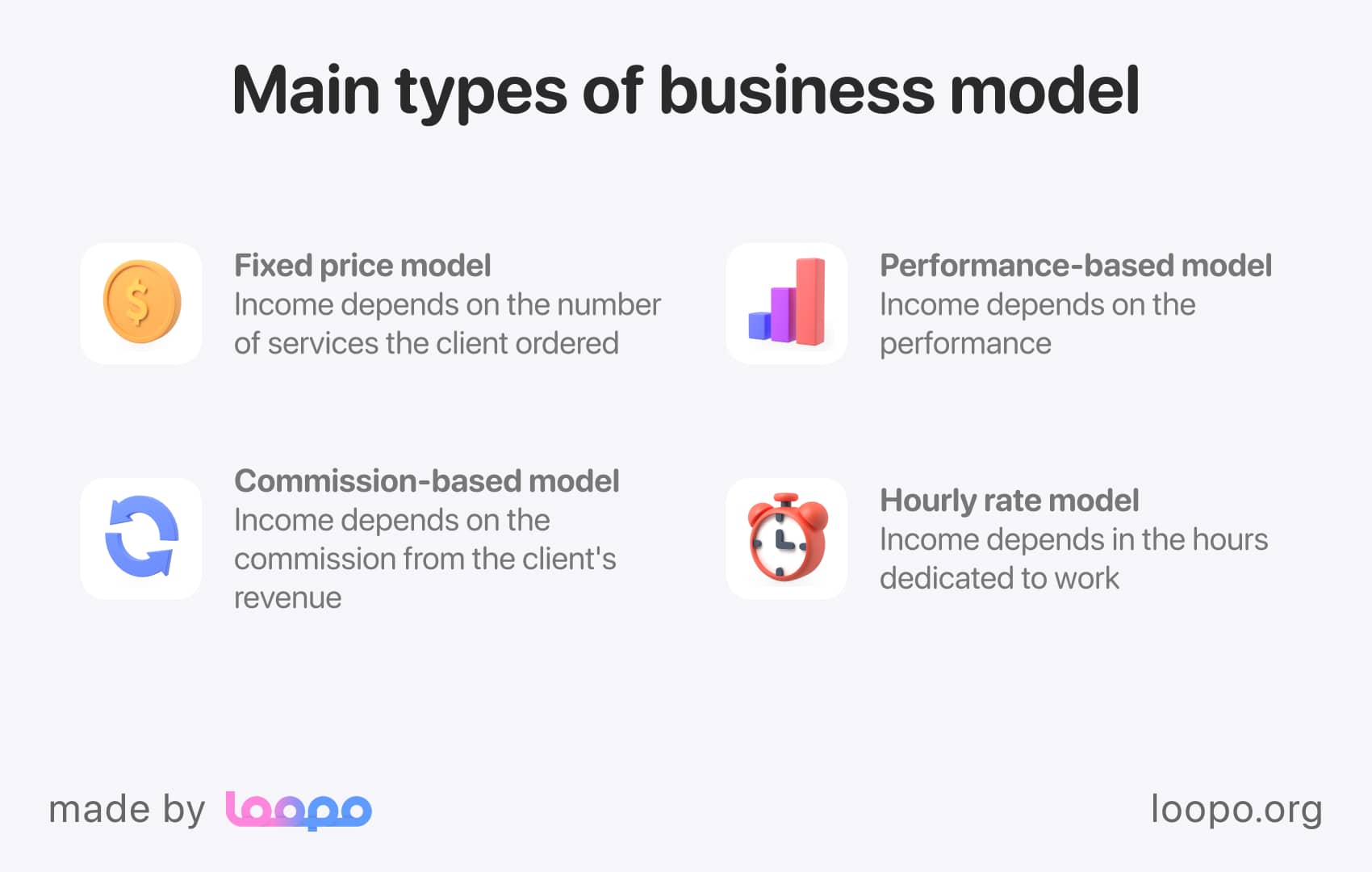
Fixed price model
This model is simple yet straightforward. According to it, your client ought to pay a fixed price you set for a certain number of services you agreed upon. This is absolutely an advantage, as this approach brings you a predictable income stream.
However, the model may lack flexibility, but it’s a sacrifice you must make. Moreover, following this model sets your team in frames. It means that the income you receive is predefined, and any overloads, delays, and issues aren’t additionally covered.
Performance-based model
Quite self-explanatory, if you follow this model, your income will be tightly tied to the performance you make. It may seem unreliable compared to others, but it has both pros and cons.
For instance, it has a motivational effect to deliver better results. On the other hand, it requires thorough planning as unpredictable things can affect performance and your revenue accordingly.
Commission-based model
Getting income based on a percentage commission on generated sales may be one of the most suitable models for a PPC agency. The commission model can be a great choice because it involves no upfront payment for the client. Moreover, it is directly aligned with the client's success.
However, it’s always wise to have a backup plan. Why? Well, the revenue you have off a commission may be inconsistent cause you never know how your client performs. You don’t want your company to suffer, do you?
Hourly rate model
This one is old but gold. All you need to do is to set up hourly rates. Different services cost different money, so think it through carefully! Applying this model provides a transparent billing process allowing you to manage finances easier.
3. Plan your pricing
Having clearly outlined pricing can bring so many benefits you won’t believe it! Let’s outline several significant pricing-related points to start your own advertising agency.
Profitability
As simple as that! But the point is the more effective pricing you set, the more sufficient revenue your agency generates. Because if you think about it, tons of things involve money. For instance, you must cover costs, pay salaries, invest in resources, and achieve profitability. So, by carefully planning your pricing, you can determine the right balance between competitiveness and profitability.
Value perception
This one is interesting. Pricing directly impacts how potential clients perceive the value of your services. Got it? Let’s speak in examples.
If your pricing is too low, it may raise questions about the quality and expertise of your agency. Even worse, it may look like you are willing to work with anything only to survive. This, in turn, logically raises questions about your company’s credibility and expertise.
On the other hand, if you set your prices too high, you may fall into the ‘premium’ category. In other words, people will start thinking you only work with premium clients that are willing to pay enormous amounts of money for the services.
Competitive positioning
Here is another essential tip. Competition is always fierce, like it or not. So, you can position your agency in the competitive landscape thanks to proper pricing. Instead of trying to capture a niche with weird pricing standards, striving to be the best in the same pricing niche is better.
In this matter, you must focus efforts to differentiate your agency based on expertise level, service quality, and value proposition. To conquer the market, analyze competitors' pricing. Ensure you set your prices at a level that positions you competitively while showcasing the unique value you bring to clients.
4. Establish your web presence
All this theory and planning is good, but how will people know about you? Right, set up your web presence.
Remember how Lightning McQueen made sure every single soul (engine probably) knew about him?
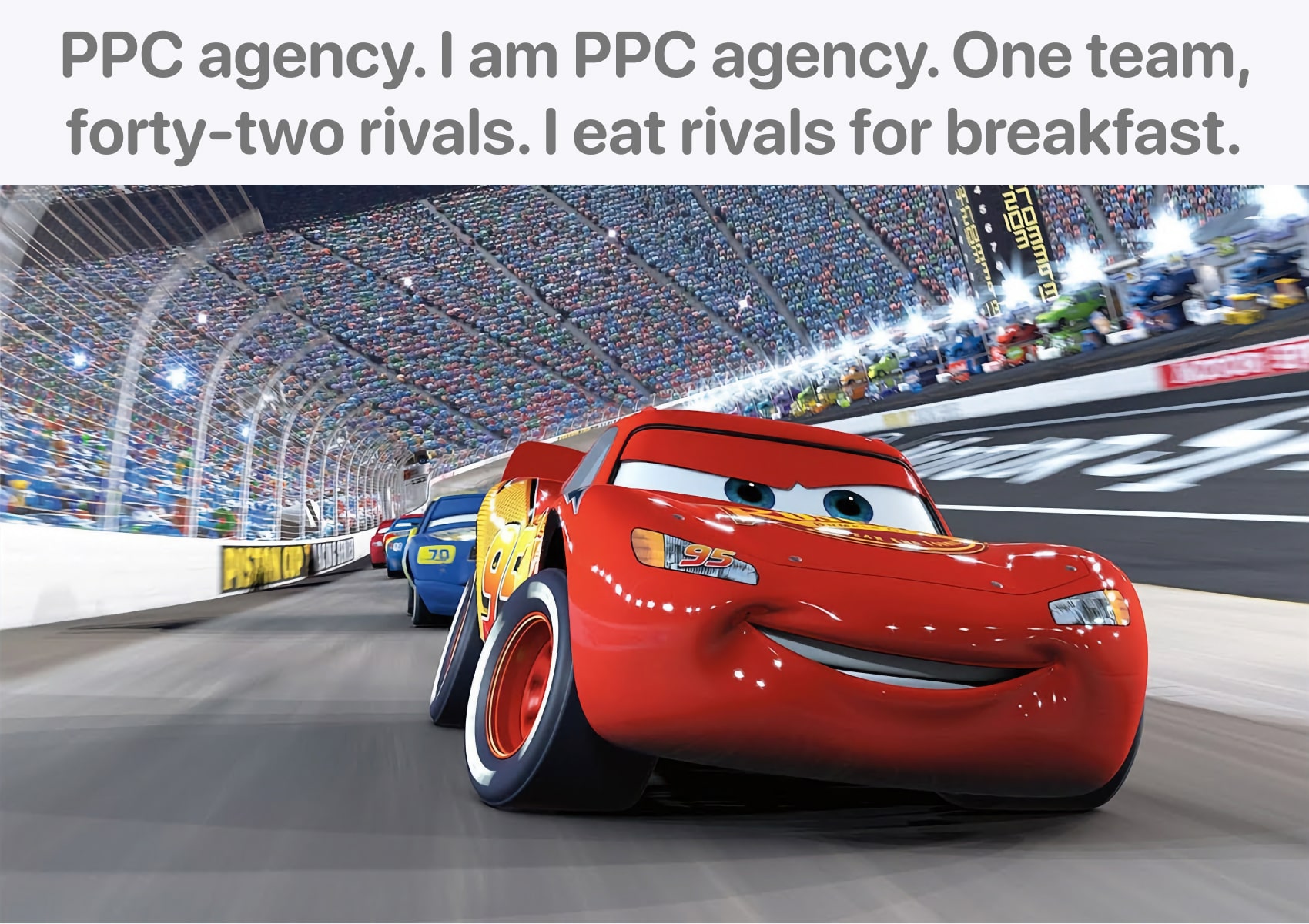
Anyways. Establishing a web presence is all about letting the world know you are here. Speaking of PPC agencies, in particular, you must have several things.
Social media
What on Earth works without social media? Especially in marketing. Social media accounts are essential to share your company’s influence around the market. For instance, you can set up a Twitter account to share urgent news. You can use LinkedIn to share insightful and professional information. In this matter, Instagram is suitable for sharing your company’s lifestyle, team, and internal events.
Do you know what might be of utmost help to manage all those publications? Loopo! Being a simple yet powerful task manager, Loopo is packed with convenient features to plan everything.
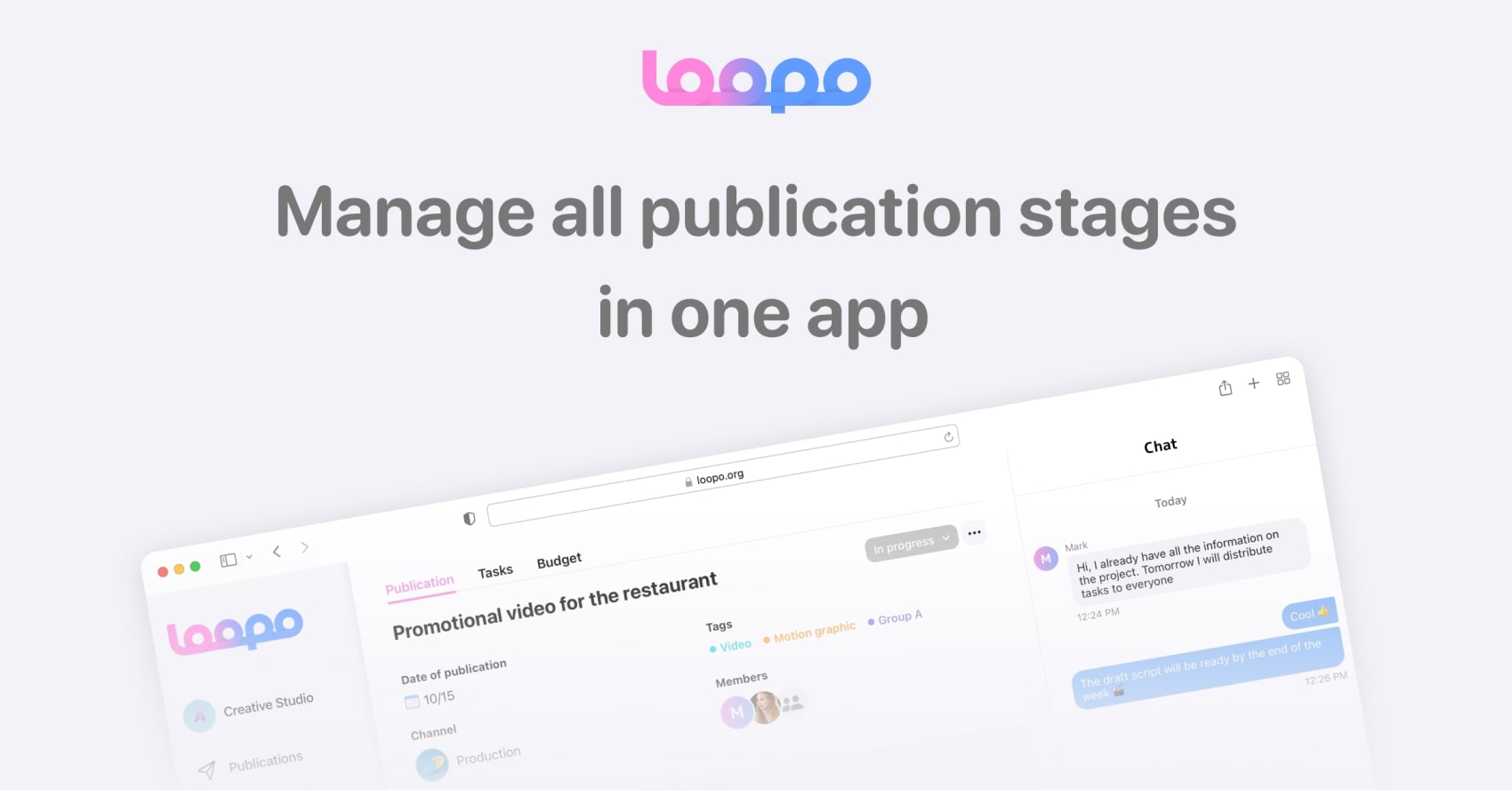
With a neatly organized calendar, you can easily manage publications in different channels.
With Loopo AI, you can create engaging copy without even leaving the site.
With a set of text editing features, you can emphasize your copy, putting accents where they are needed the most.
Blog and SEO
The blog is an essential part of your future website. You can use it to share expertise, provide more info on your working approach, and showcase your completed projects. Blogs tend to generate solid traffic if taken care of properly. How?
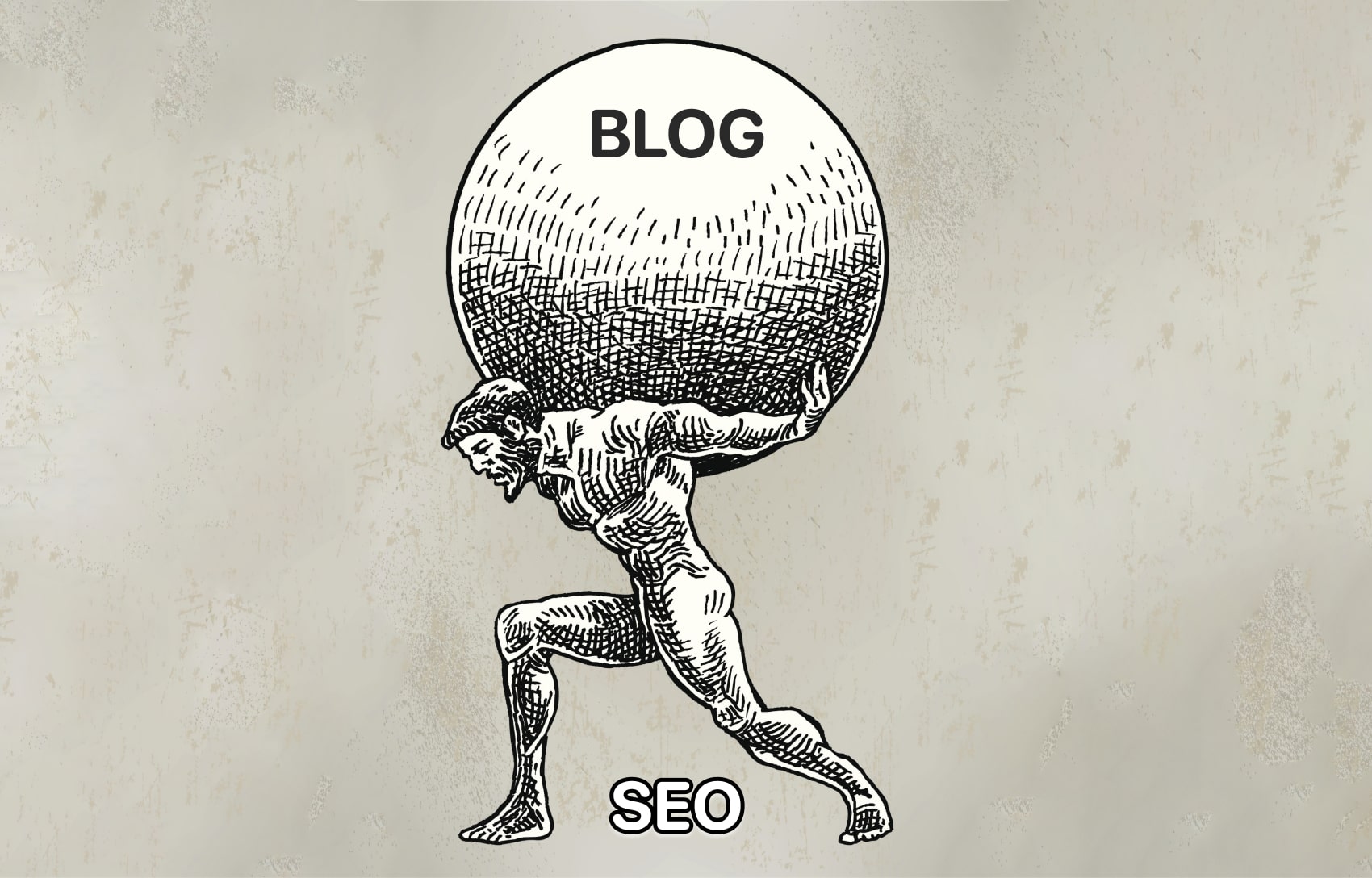
Thanks to SEO, of course. It stands for Search Engine Optimization and is created to optimize your page ranking in search results. In simple words, SEO ensures your website appears among the first when the user searches for something. Accordingly, when put together, SEO-enhanced web pages can generate a lot of traffic and potential leads.
Directory listings
These are online directories where businesses can be found by users searching for specific categories or locations. Being featured on directory listing matters.
Normally, these websites simply provide basic information about your company. For instance, it may include the name of the company, physical address, and contact information. Some websites also allow publishing posts, customer reviews, and more.
If you doubt that you need it – cut it off. Of course, you need it! The more mentions your agency has online, the better. These websites serve as trustworthy sources, they improve improve your search rankings and establish credibility.
If we convinced you, feel free to create a Google Business profile, and set up an Apple Business Connect account. You can also refer to giants Yelp, Facebook or LinkedIn.
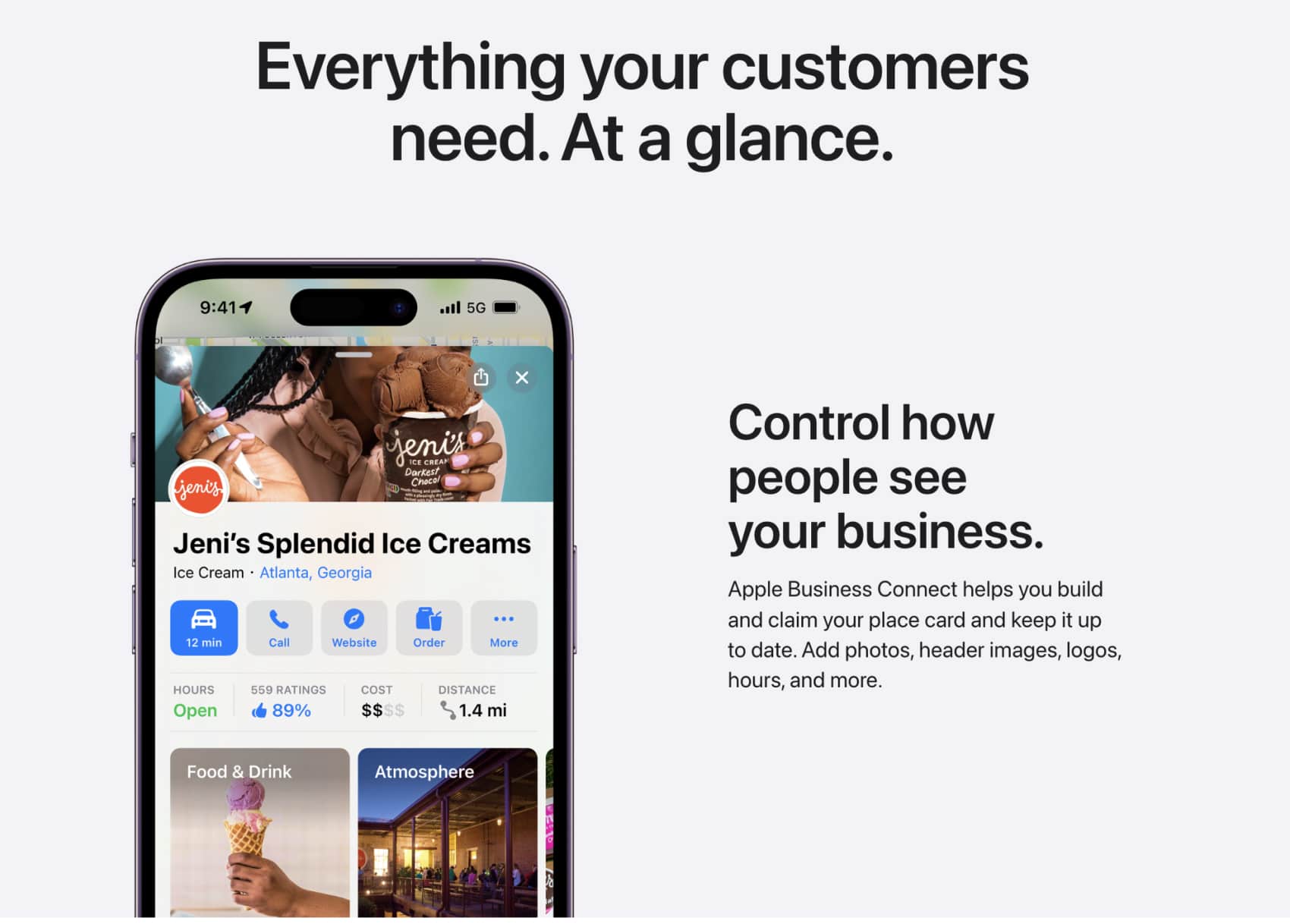
Review sites
Basically, these websites pose nothing new but they’re still quite helpful. They are like online hubs where your clients can share their thoughts and ratings about your work. It's an awesome idea to list your agency there for several reasons.
To make the most from review sites, find respected platforms that align with your industry. Then, always remind your clients to share their impressions about their partnership with you along with the result they received. Also, it’s a two-end game, so make sure you stay on top of reviews and respond in a friendly and professional manner.
To start with, you can use literally any platform. For instance, you can get listed on Clutch and Trustpilot.
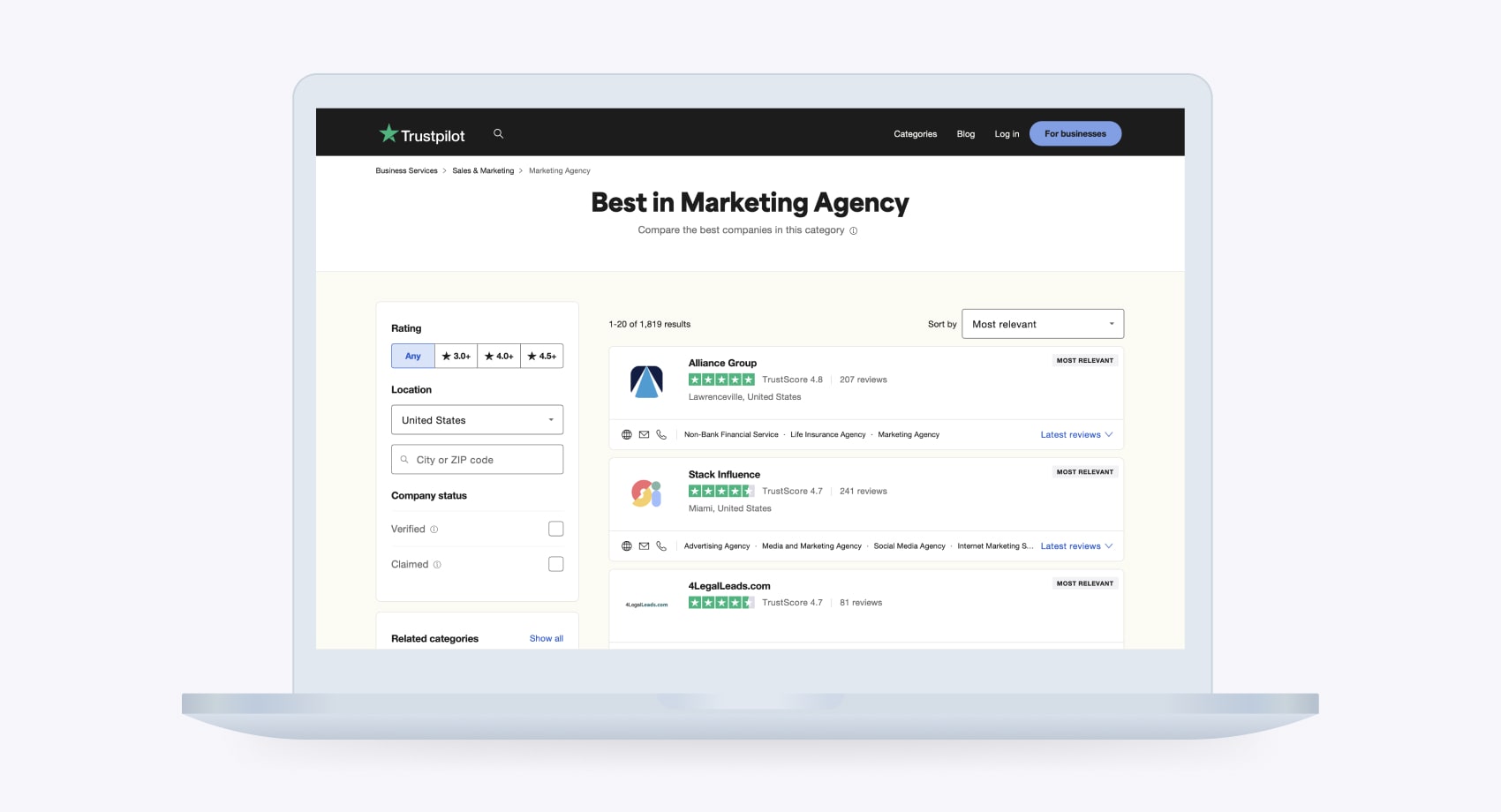
5. Begin to seek new clients
When it comes to seeking fresh clients for a PPC agency, there are two main terms. They refer to different approaches for acquiring clients.
Inbound approach
The inbound approach is all about attracting clients organically. The inbound approach requires creating valuable content and establishing your agency as a trusted resource. Moreover, it resonates and is interconnected with establishing your web presence. Here's how you can make it.
Do content marketing. Create blog posts, videos, and write guides that provide helpful information and insights related to PPC advertising. Share these resources on your website and social media to attract potential clients who are looking for valuable information.
Remember SEO? Optimize your website so that it ranks higher in search engine results. You can increase your visibility and attract organic traffic by using relevant keywords and creating content that resonates with your target audience.
Engage on social media platforms. Build a friendly and approachable presence on social media platforms where your potential clients spend time. Share industry news, participate in conversations, and respond to comments and inquiries in a helpful manner.
Do lead generation. Although it wasn’t mentioned before, it is still vital. Offer free resources like e-books or templates that provide value to potential clients. In exchange, ask for their contact information through opt-in forms, allowing you to nurture those leads over time.
Outbound approach
Compared to inbound, the outbound approach involves proactivity. It is all about reaching out to potential clients. Here's how you can do it.
Personalized outreach. Forget about generic template-ish messages. Take more time to research and personalize your outreach efforts. Create friendly and tailored emails or messages addressing each potential client's needs and challenges.
Do networking. Attend industry events, join online communities, and engage in friendly conversations. Building genuine relationships with others in your industry can lead to referrals and potential client opportunities.
Seek partnerships and collaborations. It’s another benefit of networking. Look for close collaborations with complementary service providers. By partnering with web designers or social media experts, you can refer clients to each other and mutually benefit from the relationship.
Do paid advertising. Utilize paid advertising platforms to reach your target audience directly. Create social and engaging ad campaigns highlighting the benefits of working with your agency and encouraging potential clients to take the next step.
6. Create your processes
Establishing clear and documented processes, also known as Standard Operating Procedures (SOPs), is crucial for the success of your PPC agency. Why is it important to have everything well-defined? Well, it's all about saving time and ensuring efficiency in the long run!
Drawing from your experience working with clients, take some time to create email templates, proposal templates, custom reports, and checklists to make tasks easier for your team. Keep things simple and avoid unnecessary complexity. Tools like Google Docs and Gmail can be incredibly user-friendly for creating and organizing these processes neatly in dedicated folders.
By implementing these processes early on, you'll save time and ensure smooth onboarding for new team members in the future. Your agency's operations will become streamlined, allowing you to focus on growth and providing exceptional service to your clients.
Remember, the key is to make these processes user-friendly and accessible so that anyone can follow them effectively. With well-established processes in place, you'll have a solid foundation for your PPC agency to thrive and succeed in the dynamic digital marketing landscape.
7. Build your team
In order to have a PPC agency working like clockwork, you need a talented team with a diverse set of skills. Here’s an approximate list of specialists you definitely must have in your in-house creative team structure.
PPC Strategist/Account Manager/Project Manager/Creative Director. Basically, whatever you want to name it. The point is this person must be a mastermind behind crafting winning PPC strategies and managing client accounts. They must be capable of setting campaign goals and managing the entire process to drive outstanding results.
Digital marketers/PPC specialists. These team members are the superheroes of running PPC campaigns on platforms like Google Ads, Bing Ads, and social media. They are experts in creating captivating ads and optimizing campaigns to boost the performance marketing agency has.
Analytics experts. These are the ones who dive into data and turn it into valuable insights. They know how to track campaign performance using tools like Google Analytics and generate reports that uncover hidden opportunities. They are the ones who make sense of the numbers.
Designers. They bring visuals to life and create eye-catching ad creatives and landing pages. Their creative touch makes your PPC campaigns stand out from the crowd.
Copywriters. They are the absolute must in your team. Copywriters craft compelling ad copy that grabs attention, tells a story, and persuades people to take action. They have a way with words, weaving magic into headlines, descriptions, and calls-to-action that resonate with your target audience.
Web developers. Even though it’s marketing we’re talking about, you still need developers. Why? They do their thing to ensure your pages load quickly, look stunning on any device, and guide users toward conversion. They bring the technical expertise and creativity needed to make your website shine.
8. Start developing your website
It is not your imagination. Indeed we already mentioned websites, blogs, and other things. But hear us out. Earlier, you were advised to set them up. Now, it’s the right time to develop them.
So, what your website should consist of? There must be five pillars of your future PPC agency’s website. Others are optional.
Home page
“Home, sweet home!” At least, that’s the clients’ reaction you must aim at when building a home page. This is basically an entry point to your agency. Speaking of the filling, it is totally up to you.
For example, you may want to show your latest works, news, or career opportunities. On the other hand, you may dedicate it to showcasing your achievements. In short, whatever you want, but with one condition. It must attract leads!
Services
In simpler words, this page is about what you actually offer. Considering it’s a separate page, be as discrete as possible. Dedicate a page to each service you have. Then, describe processes, technologies, approaches, and vision.
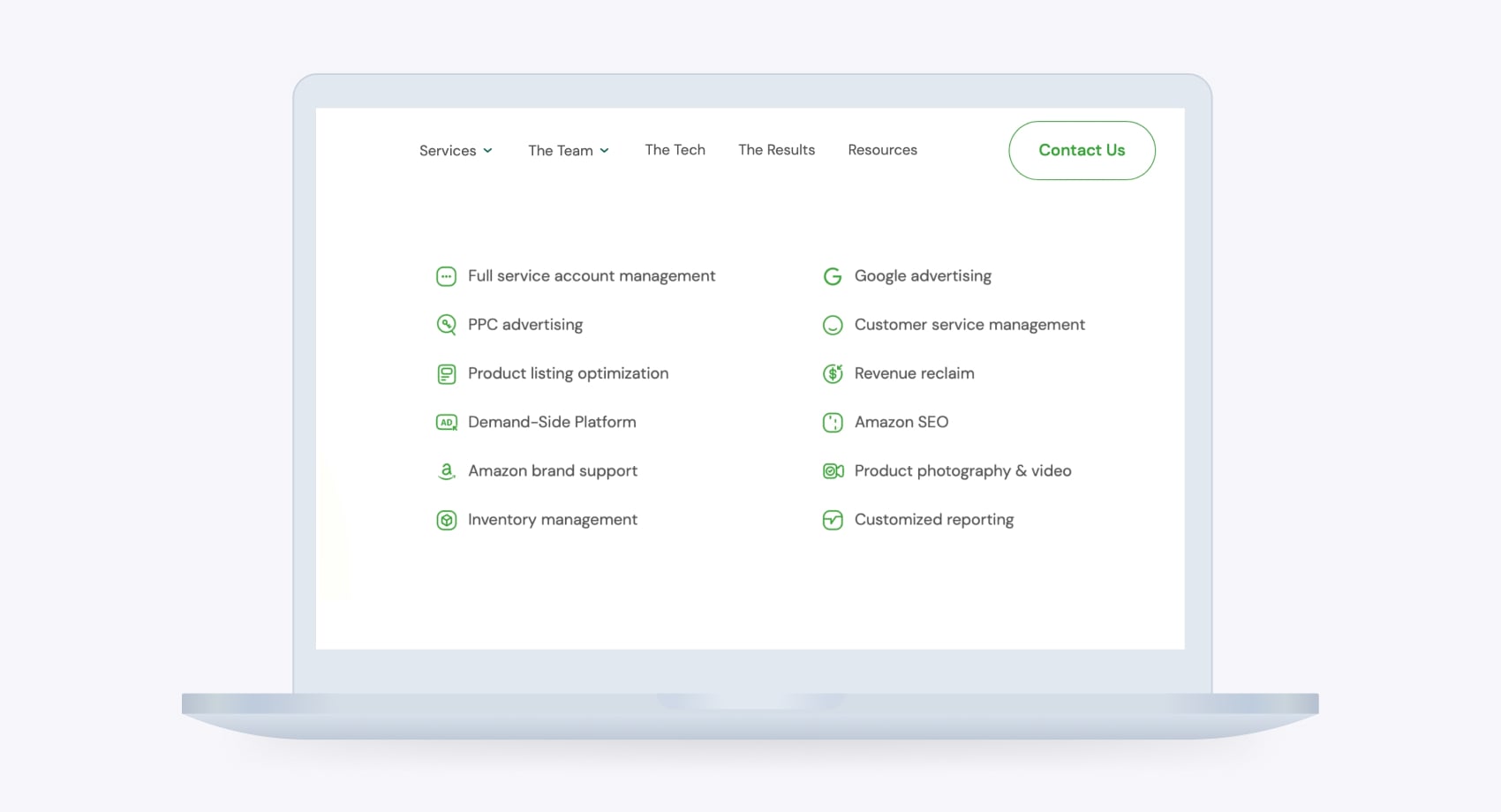
These pages must show your expertise, show that you know what you do and how to do it perfectly.
About Us page
This is the part you can design however you want. Basically, it’s the page that showcases your PPC agency. Think of it this way: have you ever looked for a job, and after seeing how the company lives from the inside, you dreamed about ending up there? That’s what the ‘About’ page does.
Include the philosophy of your agency, what goals you follow, and what vision you have. It is also a good idea to put something about your team there. Basically, the team does all the magic, so sharing some information about key employees or an agency’s lifestyle could be an excellent addition.
Case studies
This page oughta be dedicated to showcasing your works. Here are two pieces of advice we can give in this regard.
First of all, show off the diversity of your projects. Each of them must highlight different approaches, services you offered, etc. Thanks to this, your clients are more likely to find how you solved problems similar to theirs.
Secondly, make it visual and avoid clutter. People don’t want to see thousands of self-praising quotes. Instead, they simply need to see how you solved clients’ problems. Emphasize simple yet descriptive design, short but informative copy, and neatly organized “before-after” statistics. As simple as that!
Blog
It’s the last mention of a blog, we promise. It is simply too powerful thing to neglect when building a website. It would be wise to list some benefits you get when building an excellent blog page for your PPC agency’s website. However, there are plenty of them!
Show off your expertise!
A blog lets you shine and show everyone how knowledgeable you are in the world of PPC advertising. You can share your wisdom, insider tips, and lifehacks and establish yourself as a go-to expert. Reading through it will definitely make an impact, and people will likely choose your agency if your copy grabs their attention.
Educate and empower!
With your blog, you have the power to educate and empower your audience. You can share valuable insights, industry trends, and best practices in a friendly and approachable manner. By providing helpful information, you help your readers improve their own PPC efforts and succeed in their marketing endeavors.
Supercharge your SEO!
Blogging is an incredible way to boost your website's SEO. You can strategically incorporate keywords, links, and case studies into your blog posts. This will significantly improve your chances of ranking higher in search engine results.
Fuel lead generation!
Your blog is a friendly lead-generation machine! You can capture leads and nurture them into potential clients by including compelling call-to-actions within your posts, such as offering free resources or inviting readers to join your newsletter.
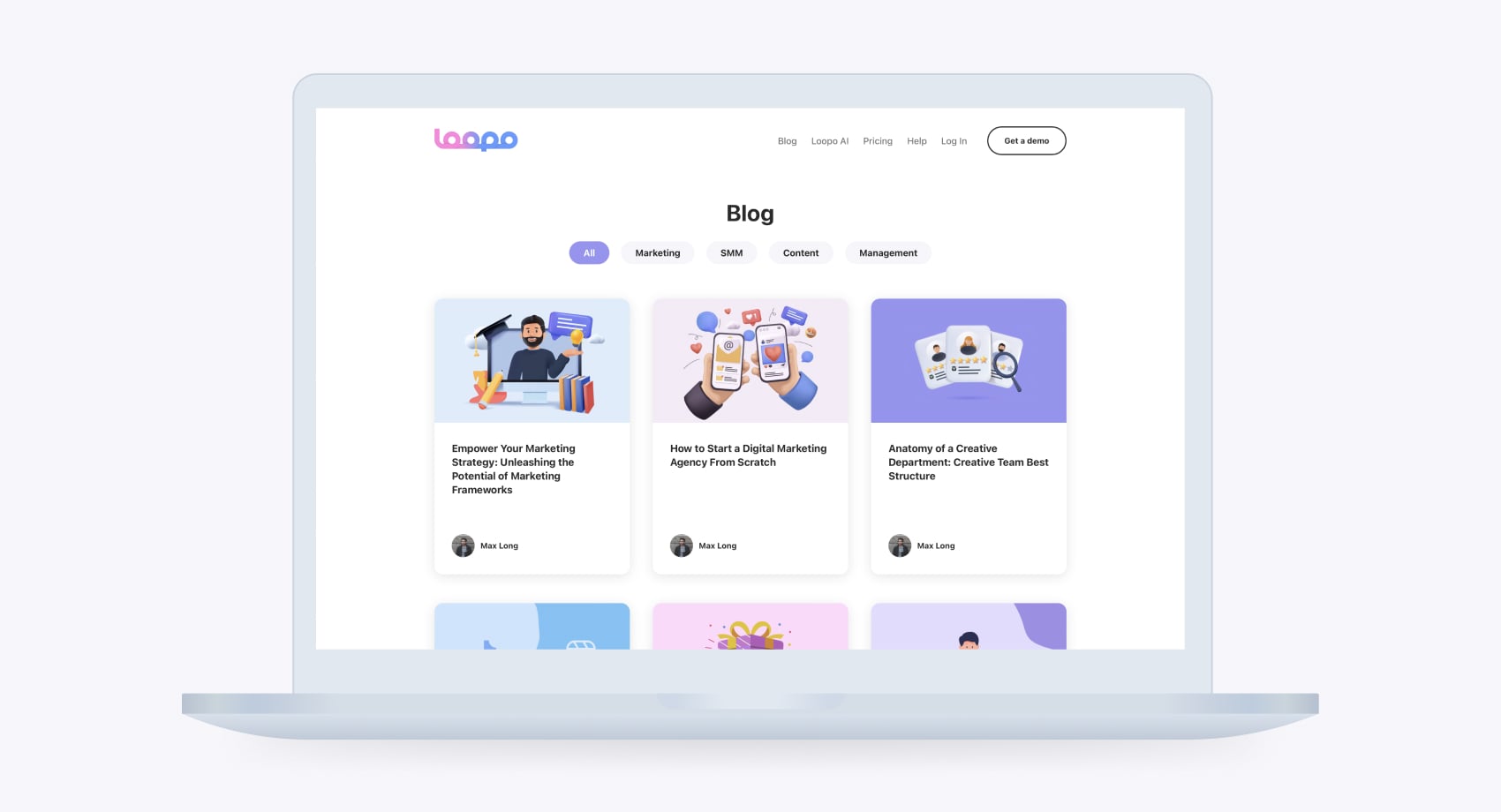
9. Register your business
It can be a cumbersome and tedious step in starting an ad agency, we feel your pain. However, it's of the utmost importance.
So let’s have a friendlier take on the importance of registration.
Registering your agency ensures that you're operating within the legal framework set by the government. It shows potential clients that you're a legitimate and trustworthy business, giving them peace of mind when choosing to work with you.
Another helpful thing to consider is registering your agency as a Limited Liability Company (LLC) to enjoy various benefits. Not only can an LLC provide tax advantages, but it also adds a layer of credibility to your business. Plus, the legal protection it offers can be a real lifesaver if things don't go according to plan.
Hire the right people. Not only do you need a professional team to do your PPC things, but also other people. For instance, you must have a lawyer to consult you on all legal aspects of your agency. Moreover, you will also need a solid accountant or a few of them. They will be handling salaries, payments, subscriptions, rent, etc.
However, all those things mentioned differ depending on the country you reside in or plan to do business in. Still, just keep in mind there are many things going on, and you should be the one managing them and leading the agency to prosperity!
Cost to start a PPC agency
One way or another, it’s impossible to predict the actual sum you will need to start an agency. If you think of how to start an ad agency, you must also care about pricing. Instead of blunt guessing, though, let’s divide the total cost into various expenses. This way, you’ll understand more about what you need to spend on.
Office space expenses
The cost of office space will vary depending on whether you choose to work from home or rent a dedicated office. Working remotely can save costs, while renting an office in a coworking space or commercial building can range from
$0 to $5,750 for rent
$0 to $1,150 for utility costs
Team expenses
Initially, as a founder, you may handle a lot of responsibilities. However, as your agency grows, you may hire employees or freelancers. Payroll costs can range a lot depending on the region, expertise, and other variables. Again, this topic is highly dependable, so let’s not make blind predictions.
Website costs
Building an effective website is crucial for a PPC agency, as we already know. The expenses for website development include the following:
Website builder ($10 - $500)
Web designer ($200 - $6,000)
Domain name ($12 - $200)
Business email hosting service ($1 - $15 per account)
Website hosting costs ($0 - $300)
Business formation/registration fees
To legally establish your PPC agency, there are various costs involved. These include:
Small business insurance ($500 - $2,000)
Permit and license fees ($50 - $700)
Trademark registration ($0 - $700)
Lawyer fees ($0 - $1,500)
Patent costs ($5,000 - $15,000)
Training & education expenses
Investing in learning and development is essential to stay updated with the industry trends and skills required to run a successful PPC agency. Costs for online learning sites and courses can range from $0 (min) to $1,000 (max).
Software expenses
In your daily operations, you will need various software tools. For example:
Design tools and software costs range from $0 to $50 per month
Email marketing tools ($0 - $100)
IT support ($150 - $2,000)
Accounting and invoicing software ($0 - $50)
CRM software ($12 - $300)
Project management software ($0 - $25)
Internal communication tools ($0 - $20)
Social media management tools ($0 - $50)
Advertising and marketing costs
Promoting your PPC agency is essential to attract clients. Here are some things you will need:
Costs for business cards range from $0 to $50
Customer research and surveys can cost around $0 to $300
You may also want to attend tradeshows, events, lectures, etc. They may involve expenses like booth fees, giveaways, and promotional items, which can range from $0 to $5,000.
On the other hand, traditional marketing methods like direct campaigns, printing, and mailing can cost up to $300. If you want to go global, press outreach and paid media opportunities can range from $0 to $500.
Advertising costs for platforms like Google Ads and Facebook & Instagram Ads can vary depending on your budget but typically range from $0 to $350.
Let’s briefly sum everything up somehow. The total costs for starting an advertising agency can range a lot.
On the one hand, It may start from a bare minimum of $100 and a hell lot of enthusiasm.
On the other hand, it can go up $50,000+, depending on the choices you make and the size of your agency.
Anyways, here’s a table to save your time. Who knows, maybe one day, a screenshot of this table will help you make a superb decision when starting a PPC agency.
| Expense category | Cost range |
| Office space expenses | |
|
Rent:
|
$0 - $5,750
|
|
Utility costs:
|
$0 - $1,150
|
| Team expenses |
varies
|
| Website costs | |
|
Website builder:
|
$10 - $500
|
|
Web designer:
|
$200 - $6,000
|
|
Domain name:
|
$12 - $200
|
|
Business email hosting:
|
$1 - $15 per account
|
|
Website hosting:
|
$0 - $300
|
| Business formation/registration fees | |
|
Small business insurance:
|
$500 - $2,000
|
|
Permit and license fees:
|
$50 - $700
|
|
Trademark registration:
|
$0 - $700
|
|
Lawyer fees:
|
$0 - $1,500
|
|
Patent costs:
|
$5,000 - $15,000
|
| Training & education expenses |
$0 - $1,000
|
| Software expenses | |
|
Design tools and software:
|
$0 - $50 per month
|
|
Email marketing tools:
|
$0 - $100
|
|
IT support:
|
$150 - $2,000
|
|
Accounting and invoicing software:
|
$0 - $50
|
|
CRM software:
|
$12 - $300
|
|
Project management software:
|
$0 - $25
|
|
Internal communication tools:
|
$0 - $20
|
|
Social media management tools:
|
$0 - $50
|
| Advertising and marketing costs | |
|
Business cards:
|
$0 - $50
|
|
Customer research and surveys:
|
$0 - $300
|
|
Tradeshow/event expenses:
|
$0 - $5,000
|
|
Traditional marketing:
|
up to $300
|
|
Press outreach and paid media:
|
$0 - $500
|
|
Advertising platforms (e.g., Google Ads, Facebook & Instagram Ads):
|
$0 - $350
|
| Total costs range |
$100 - $50,000+ |
Bottom line
It’s been a long journey, hasn’t it? After all this, it’s time to answer an eternal question we all gathered here for. Can you start your own advertising agency with no experience?
A-b-s-o-l-u-t-e-l-y
It is absolutely doable if you arm with knowledge, will, and motivation. In a nutshell, it requires a lot of planning and research, but the actual steps are pretty straightforward, don’t you think?
At this point, let’s overview everything. In this piece, we walked through how to start a PPC agency, diving into many details. We listed the types of PPC agencies and the types of ads they work with. Lastly, we overview the approximate costs of creating an agency.
We sincerely hope this piece will be a great head start for you. Moreover, you can find even more insightful articles in our blog. Also, if you are switching from learning to action one day, feel free to try Loopo! It is perfectly suitable for daily task planning, managing your learning process, and setting up deadlines.


